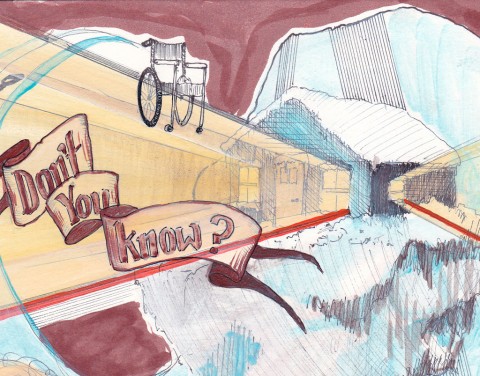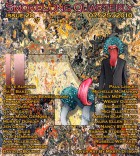The boys fathers father would fall backwards into banks of snow and let the sled dogs pile on. Hed only rise after each one licked his face. From the front yard hed tap the kitchen window until the boy came running and pressed his nose to the pane, heard the dogs barking, and saw the freezing streaks and patches in the old mans beard. When a dog died it was the worst youd ever seen him, and every time.
The boys mothers mother sculpted little men from blocks of ice. The boy would watch her hands, striped in burn-scars, and listen to her humming. Hed copy her humming when he found himself alone. Before she died she carved the boy a smiling dwarf. It had the look of someone who knew exactly what you meant. He hid the figure in the freezer, imagining hed saved a life.
Winter was when the boys mother laughed the cleanest. In the evening her eyes would blink at different rates. She was sweaty in the other seasons, always wearing many layers, sweaters, blankets, turtlenecks, and if you asked her how she was she sometimes said, “I wouldnt know.”
Or, “Dont you know?”
In the winter when the boys father wasnt out working theyd play “Avalanche,” which meant the boy would count to ten while buried beneath shoveled mounds of snow. With the weight came sweats and stifled flailing and the dim, primal threat of a wet and heavy death, but when the boy hit ten in his head and burst through thrashing it was to relief, clean air, his father waving, both screaming “Avalanche!” and hoping for reburial, one more burial, “Avalanche!” theyd bellow, louder, until laughing so hard their heads carried off and they tumbled into churned-up cushions of snow, grinning and gasping, out of it together.
At the end of his life the boy told his daughter, who was pregnant: “Even so I never knew them.”
His daughter was sharp. “Did you want to?”
He sat thinking in his wheelchair, in her house, wrapped in white blankets.



 Included in the price of SmokeLong Fitness:
Included in the price of SmokeLong Fitness: